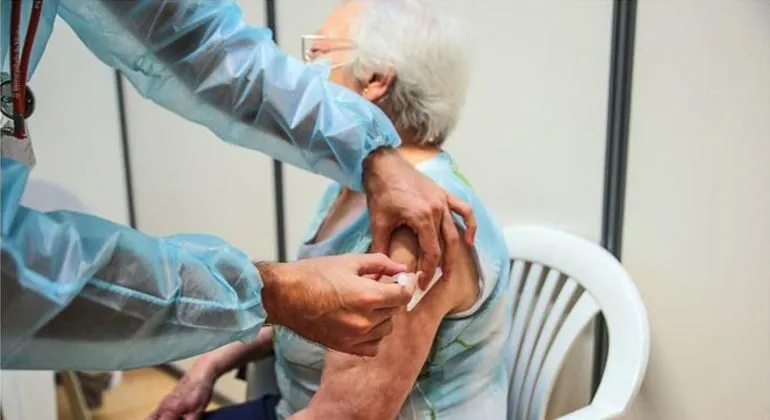
WHO Urges Europe to Stop Ignoring COVID-19 as New Threats Loom
2024-10-09
Author: Wei Ling
WHO Warns of Collective Amnesia on COVID-19
The World Health Organization (WHO) has issued a stark warning about the dangers of "collective amnesia" surrounding COVID-19, stressing that the virus continues to pose a serious risk, particularly to vulnerable groups such as the elderly, pregnant women, and individuals with pre-existing or chronic illnesses. WHO Europe announced the launch of a region-wide initiative aimed at reinforcing the importance of vigilance against respiratory viruses, including COVID-19, influenza, and respiratory syncytial virus (RSV).
Renewed Awareness Needed
Dr. Hans Kluge, the WHO Regional Director for Europe, highlighted the need for renewed awareness: “Collective amnesia on COVID-19 has set in and this is concerning. While it is natural for individuals and societies to wish to move on from the trauma of the pandemic, COVID-19 remains present, circulating alongside other harmful respiratory viruses.”
Unsettling Statistics
Despite the push to return to normalcy, the statistics are unsettling. In the past month alone, the WHO's European region reported over 278,000 new COVID-19 cases and approximately 748 deaths across countries from Cyprus to Moldova. These figures, which stand as the highest in any WHO region, could very well be underreported, leading to even greater concern among health officials.
Flu Deaths and Vaccination Importance
Dr. Kluge noted that across 53 countries in Europe and Central Asia, seasonal influenza alone has caused around 72,000 deaths, making up about 20% of the global burden of flu deaths. He emphasized, “The vast majority of these deaths can be prevented.” Vaccination remains crucial for protecting those at risk from severe illness.
Emerging Pathogens
Adding to the troubling scenario, new pathogens continue to emerge. Dr. Kluge referenced the unexpected emergence of mpox clade II in Europe in 2022, alongside the persistent threat posed by RSV and influenza, particularly as the weather turns colder and people tend to gather indoors. “In these coming months, we can expect heightened intensity of these viruses,” he warned.
Call for Prioritization of Vulnerable Populations
The WHO called on national health authorities to prioritize the protection of vulnerable populations, advocating for increased investment in public healthcare systems to alleviate the pressure on overburdened healthcare workers. Dr. Kluge stressed the importance of consistent surveillance and monitoring of both existing and emerging viruses, underscoring the need to be prepared for future health emergencies.
Practical Preventive Measures
As part of its public health campaign, WHO Europe emphasized practical preventive measures against respiratory viruses. They include: staying home when sick, practicing good hand hygiene, and ensuring adequate ventilation in enclosed spaces. Additionally, those with weakened immune systems—along with anyone suspecting they've contracted a respiratory virus—are advised to wear well-fitting masks in crowded settings.
Shared Responsibility
“The responsibility to protect against respiratory viruses lies with both governments and society as a whole,” Dr. Kluge declared. “It’s imperative that we foster a culture of care and solidarity with the vulnerable among us.”
The Urgency for Vigilance
As the world navigates the post-pandemic landscape, the message is clear: vigilance is key. The risks are not over, and now, more than ever, a proactive approach to health could save countless lives. Don’t let your guard down—COVID-19 is still a threat!






 Brasil (PT)
Brasil (PT)
 Canada (EN)
Canada (EN)
 Chile (ES)
Chile (ES)
 España (ES)
España (ES)
 France (FR)
France (FR)
 Hong Kong (EN)
Hong Kong (EN)
 Italia (IT)
Italia (IT)
 日本 (JA)
日本 (JA)
 Magyarország (HU)
Magyarország (HU)
 Norge (NO)
Norge (NO)
 Polska (PL)
Polska (PL)
 Schweiz (DE)
Schweiz (DE)
 Singapore (EN)
Singapore (EN)
 Sverige (SV)
Sverige (SV)
 Suomi (FI)
Suomi (FI)
 Türkiye (TR)
Türkiye (TR)